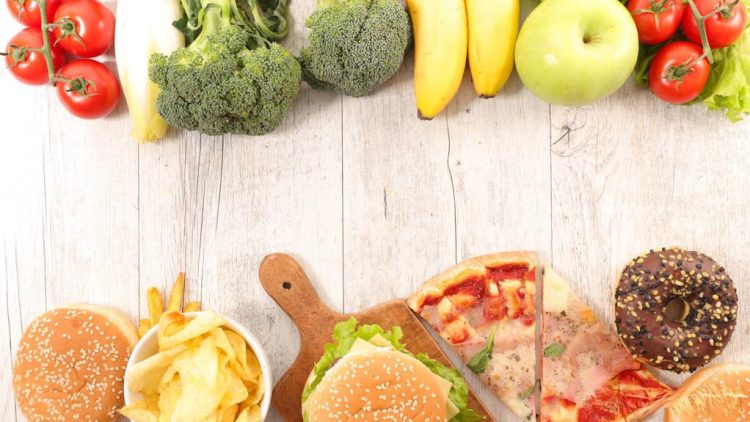Acidic foods and beverages are often delicious and enjoyable, but they can have a significant impact on your oral health if consumed in excess. The acids in certain foods and drinks can erode tooth enamel, weaken the structure of your teeth, and contribute to dental problems like cavities and sensitivity. In this article, we will explore the effects of acidic foods on your teeth, how they can cause damage, and what you can do to minimize their negative impact.
Understanding Acidic Foods and Their Impact on Teeth
Acidic foods and drinks are those with a low pH level (below 7) that can introduce harmful acids into the mouth. Some examples of these foods include citrus fruits (lemons, oranges, grapefruits), soft drinks (especially sodas and energy drinks), vinegar, and certain types of wine. While the acids in these foods can be good for digestion and have health benefits, they can also be harmful to your teeth when consumed frequently or in large amounts.
How Acidic Foods Affect Teeth
The primary concern with acidic foods is their ability to wear down tooth enamel. Enamel is the hard, protective outer layer of your teeth that helps prevent cavities and protects the softer underlying layers of the teeth, such as dentin. When enamel is exposed to acid, it begins to demineralize, or lose essential minerals like calcium and phosphate, making the teeth more vulnerable to decay and sensitivity.
Key effects of acidic foods on teeth:
- Enamel Erosion: Acids can soften and wear away enamel over time, making teeth more susceptible to damage.
- Increased Sensitivity: As enamel wears away, the underlying dentin becomes exposed, leading to tooth sensitivity, particularly when consuming hot, cold, or sweet foods.
- Cavities: Once enamel is damaged, bacteria can more easily penetrate the teeth, leading to the formation of cavities.
- Discoloration: Erosion of enamel can cause teeth to appear more yellow since the dentin, which has a yellowish hue, becomes more visible.
- Tooth Decay: Prolonged exposure to acids can lead to structural damage and even tooth decay, which may require restorative treatments like fillings or crowns.
Foods and Drinks That Are Highly Acidic
Some foods and beverages are more acidic than others, and frequent consumption of these can have a more significant impact on your enamel. Here are some common examples:
- Citrus Fruits (Lemons, Oranges, Grapefruits):
- These fruits contain citric acid, which is highly acidic and can contribute to enamel erosion.
- Soda and Soft Drinks:
- Both regular and diet sodas contain carbonic acid, citric acid, and phosphoric acid, all of which can erode enamel. Sugary sodas further increase the risk by feeding bacteria that produce decay-causing acids.
- Energy Drinks:
- Many energy drinks are not only highly acidic but also contain sugar and other additives that can promote plaque buildup and decay.
- Vinegar and Pickled Foods:
- The acetic acid in vinegar can be harsh on enamel, especially if consumed frequently.
- Wine:
- Both red and white wines are acidic and can cause enamel erosion. White wine, in particular, has higher acidity and can also stain teeth.
- Tomatoes and Tomato-Based Sauces:
- Tomatoes contain citric acid and malic acid, which can wear down tooth enamel when consumed in excess.
How to Minimize the Harmful Effects of Acidic Foods
While it’s not necessary to eliminate acidic foods from your diet entirely, there are several strategies you can use to protect your teeth from the negative effects of acidity. By taking precautions, you can enjoy these foods without causing damage to your enamel.
1. Wait Before Brushing Your Teeth
One of the most common mistakes people make after consuming acidic foods or drinks is brushing their teeth immediately. This can actually cause more harm than good. After eating or drinking acidic foods, your enamel becomes temporarily softened, and brushing right away can cause further enamel wear.
What to do:
- Wait at least 30 minutes to an hour before brushing your teeth after consuming acidic foods. This allows the enamel to re-harden and reduces the risk of abrasion.
- Rinse your mouth with water immediately after consuming acidic foods to help neutralize the acid and wash away harmful particles.
2. Drink Water After Acidic Foods
Drinking water after eating or drinking acidic foods helps to rinse away acids from the surface of your teeth and promotes saliva production. Saliva is a natural defense against enamel erosion, as it helps to neutralize acids and remineralize enamel.
What to do:
- Drink a glass of water after consuming acidic foods or beverages. This helps wash away acids and restores the pH balance in your mouth.
- Sip water throughout the day to keep your mouth hydrated and your enamel protected.
3. Use a Straw for Acidic Drinks
When drinking acidic beverages like soda, citrus juice, or energy drinks, using a straw can reduce the contact these drinks have with your teeth. By directing the liquid to the back of your mouth, you minimize the amount of acid that touches your enamel.
What to do:
- Use a straw when drinking acidic beverages to limit the exposure of your teeth to harmful acids.
- Try to avoid sipping these drinks over a prolonged period, as it prolongs the time your teeth are exposed to acid.
4. Choose Less Acidic Alternatives
While it may not always be possible to avoid acidic foods entirely, there are often alternatives that are less harsh on your teeth. For example, opting for milder citrus fruits like melons instead of lemons or oranges can help reduce the acidic load on your enamel. You can also switch to low-acid beverages like herbal teas instead of coffee or soda.
What to do:
- Choose milder fruits like bananas, melons, and pears, which are less acidic than citrus fruits.
- Consider switching to non-acidic drinks like milk, herbal teas, or water.

5. Chew Sugar-Free Gum
Chewing sugar-free gum after eating or drinking acidic foods can help stimulate saliva production, which is your mouth’s natural defense against acid. Saliva helps neutralize acid and provides minerals that can strengthen enamel.
What to do:
- After consuming acidic foods or drinks, chew sugar-free gum for 10–15 minutes. This will help neutralize acids and boost saliva flow.
- Look for gums with xylitol, a sugar substitute that has been shown to help protect against cavities.
6. Maintain a Healthy Diet for Strong Teeth
In addition to limiting acidic foods, it’s essential to consume a balanced diet that supports dental health. Foods rich in calcium, vitamin D, and phosphorus can help remineralize enamel and protect your teeth against acid damage.
What to eat:
- Dairy products like milk, cheese, and yogurt provide calcium and phosphorus to strengthen enamel.
- Leafy greens like spinach and kale are high in calcium and vitamin C, which supports gum health.
- Nuts like almonds are rich in calcium and magnesium, essential for maintaining strong teeth.
7. Visit Your Dentist Regularly
Regular dental checkups are essential for maintaining optimal oral health, especially if you’re prone to consuming acidic foods and drinks. Your dentist can identify early signs of enamel erosion, offer professional cleanings, and provide advice on how to minimize damage from acidic substances.
What to do:
- Visit your dentist at least twice a year for regular cleanings and checkups.
- Ask your dentist for advice on enamel protection and treatments like fluoride varnishes to help remineralize your teeth.
Conclusion
Acidic foods and drinks, while delicious and often beneficial for health, can have a damaging effect on your teeth if consumed too frequently or without proper care. By understanding the impact of acidity on your enamel and implementing protective measures, you can enjoy these foods and beverages without compromising your oral health. Remember to practice good oral hygiene, drink plenty of water, wait before brushing, and visit your dentist regularly to ensure your teeth stay strong and healthy. With a few simple adjustments, you can minimize the impact of acidic foods on your smile and keep your enamel intact for years to come.













































Discussion about this post